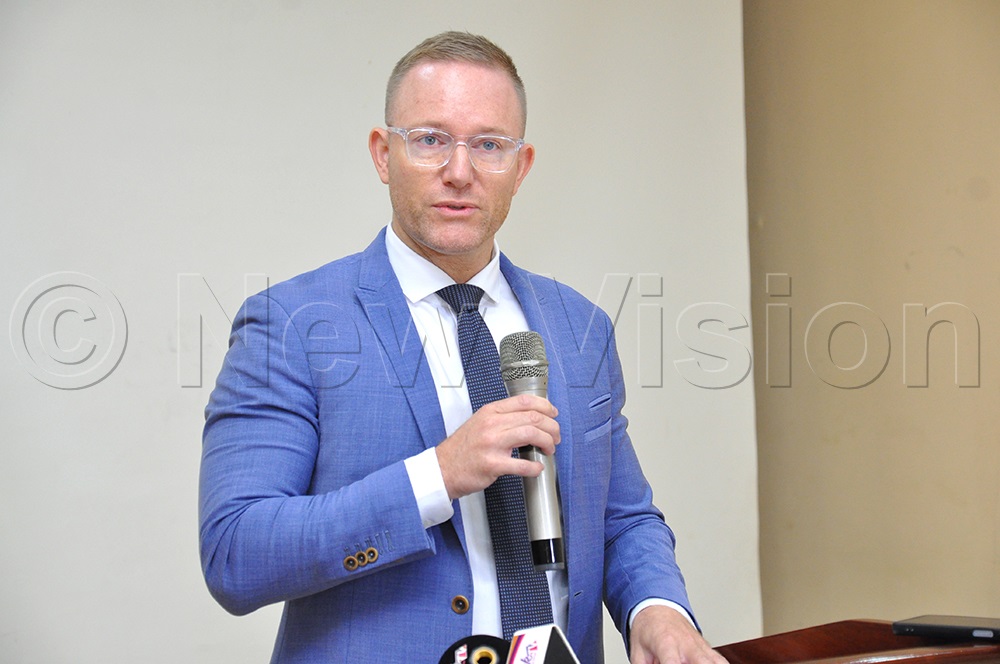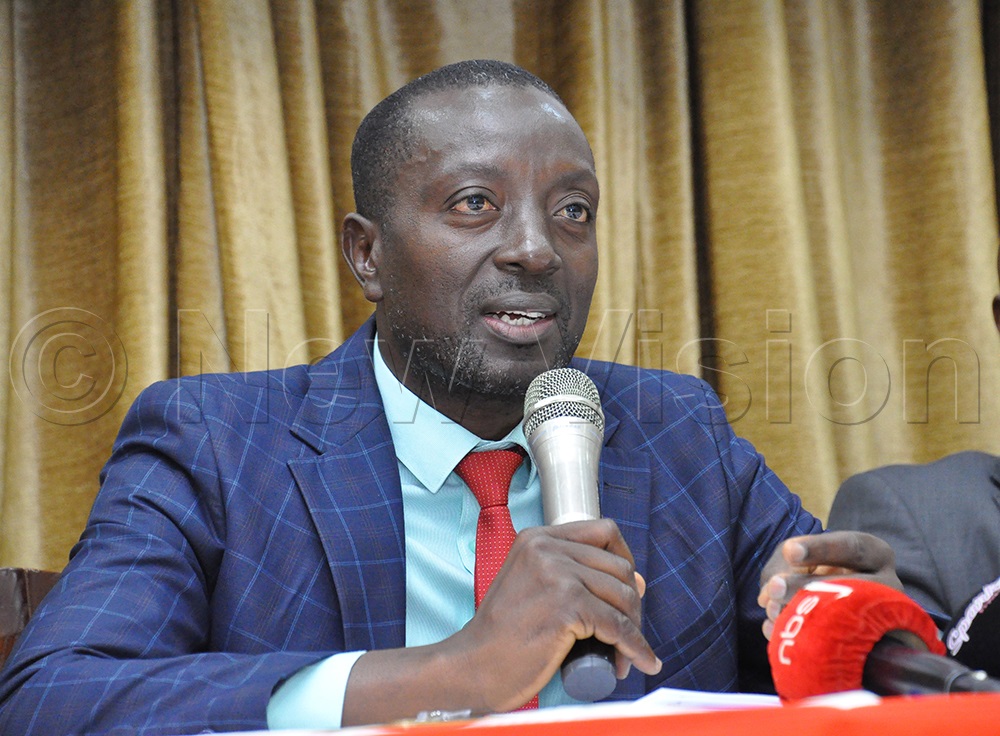Uganda needs to embrace modern waste management technologies, says German diplomat
German Embassy in Uganda deputy head of development co-operation, Phillipe Roussel, says embracing modern technologies will be critical if Uganda is to overcome challenges in solid waste management.
Officials pose for a group photo. This was during the high-level stakeholders’ engagement meeting at Imperial Royale on August 20, 2025. (Photo by Nancy Nanyonga)
_________________
The Government of Uganda needs to embrace modern waste management to overcome its current challenges, New Vision Online has heard.
German Embassy in Uganda deputy head of development co-operation, Phillipe Roussel, says embracing modern technologies will be critical if Uganda is to overcome challenges in solid waste management.
Roussel, who says Uganda requires more financial resources to strengthen waste collection systems and safeguard the health of waste workers, was on August 21, 2025, speaking at a workshop organised by Public Services International (PSI) at the Imperial Royale Hotel in Kampala.
Philippe Roussel Deputy Head of Development Cooperation Embassy of Germany addressing participants. This was during the high-level stakeholders’ engagement meeting at Imperial Royale on August 20, 2025. (Photo by Nancy Nanyonga)
“I see that their tools are not to the required standards. There needs to be certainly more budget in those sectors where these young people (garbage collectors) are working in a safe environment and have also an appropriate salary,” Roussel advised.
He, therefore, pledged the German government's continued support to Uganda in addressing urban waste management challenges, noting the need for stronger investment and adoption of modern technologies in the sector.
He added that Germany, through NGOs such as Bildungswerk, will continue supporting waste management initiatives, building on the 60 years of bilateral cooperation between the two countries.
The workshop, held under the theme: Promoting Transparency and Work in Supply Chains in Sub-Saharan Africa (Phase II), brought together leaders from the cities of Fort Portal, Jinja and Mbarara, the National Water and Sewerage Corporation (NWSC), and Members of Parliament, as well as religious and faith-based leaders.
Poor planning challenges
Kampala Capital City Authority (KCCA) official, James Kunobere, highlighted the challenges the city faces, especially poor physical planning that leaves no space for garbage trucks to access premises.

James Kunobere Acting Deputy Director Environment and Sanitation Directorate of Public Health and Environment (KCCA) addressing participants during the high-level stakeholders’ engagement meeting at Imperial Royale on August 20, 2025. (Photo by Nancy Nanyonga)
“If you are not going to take physical planning seriously, you are coming where we are, because in Kampala, there are places where even a Tuku Tuku (three-wheeled motorcycle) cannot access, especially in Rubaga,” he said.
Kunobere also appealed to the central government to renew garbage truck fleets every three years, as breakdowns continue to affect service delivery. He noted that handling bio and medical waste is both expensive and complex, calling for more government involvement.
Leaders from other cities echoed the same concerns. Jinja city Mayor, Peter Kasolo, pointed out that government entities often work in isolation, which undermines efforts to improve urban cleanliness.
Fort Portal city mayor, Edson Asaba Ruyonga, stressed the need for stronger collaboration between local governments and the central government.
“Kampala is completely on one side of the river, and the local governments are on the other side. The bridge is almost not there,” he lamented.
Ruyonga urged Uganda to emulate Rwanda, where waste management is driven by clear policies and strong government supervision. “If the government wants to make sure the whole country becomes a clean entity, like Rwanda, then policies should be made by parliament and a helping hand should always come from the central government,” he said.
Workers’ Member of Parliament (MP), Dr Abdulhu Byakatonda, also attended the event and called for better coordination and government support to empower the newly created cities in managing waste effectively.